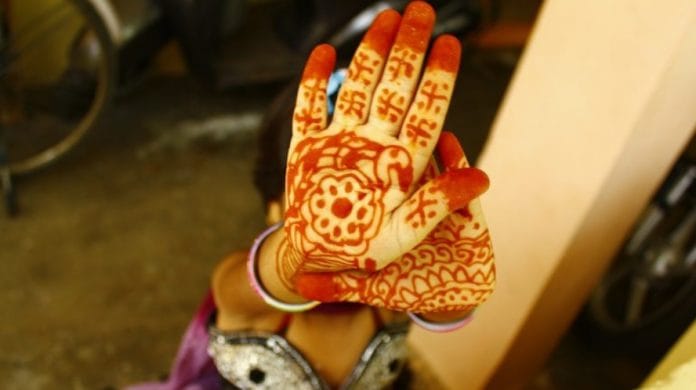New Delhi: What could be a potential policy tool that governments can deploy to discourage child marriage? An international team comprising researchers from the US’ Stanford and Duke universities claims to have found an answer in a household staple: cooking oil.
After a multi-year study conducted in Bangladesh, which has the second-highest prevalence of child marriage after Niger (Africa), the researchers concluded that offering cooking oil as an incentive to girls and their families can convince them to postpone marriage.
According to the study, titled ‘A Signal to End Child Marriage: Theory and Experimental Evidence from Bangladesh’, the cooking oil incentive resulted in reducing child marriage under age 18 by 17 per cent, and by 18 per cent at below 16 years. This conclusion is based on oil distribution among families of girls aged 15-17 on the condition that they won’t be married underage.
The study was led by Nina Buchmann of Stanford University’s economics department. Conducted in collaboration with the US-based humanitarian organisation, ‘Save the Children’, it was a randomised trial involving thousands of girls across 460 rural communities in six sub-districts of south central Bangladesh.
Cooking oil was chosen, the researchers said, because of its utility in a Bangladeshi household. It “has to be purchased regularly by every family in Bangladesh and thus is a close substitute to cash”, the researchers stated, adding that it “also has a high value to volume ratio, which minimised transport costs”.
While the findings have been discussed by the researchers earlier, the study, which took place between 2007 and 2017, was published earlier this month as a working paper by the National Bureau of Economic Research (NBER), a US-based private non-profit that conducts and disseminates economic research.
Working papers published by the NBER are meant for discussions and comment, and have not been peer-reviewed.
Also Read: How 2 UP girls got their weddings called off as child marriage bids see rise during pandemic
Cooking oil vs empowerment
Child marriage remains prevalent in many parts of the world, including countries where it has been declared illegal. According to a United Nations International Children’s Emergency Fund (UNICEF) report from April 2020, 29 per cent of women aged 20-24 years in south Asia were married before they turned 18.
For Bangladesh, UNICEF estimates the figure to be 51 per cent.
India, meanwhile, accounts for 1 in 3 of all child brides in the world.
Child marriage is believed to be more common among girls, but is seen as equally damaging for boys. The more significant consequences of child marriage include underage pregnancy, which may be detrimental to the health of both mother and baby, as well as interrupted schooling.
As part of their study, the researchers offered two broad incentives to adolescents — cooking oil was “financial”, while the second approach offered training for “empowerment”.
In the first group, girls aged 15-17 were given $16 worth of oil per year at regular intervals, for up to two years or until they turned 18, as long as they remained unmarried, with the researchers implementing measures to keep a check on their age, marital status etc.
A food security programme for pregnant and lactating women that was already being run by Save the Children helped roll this out.
Under the empowerment programme, girls were invited to an initiative called the ‘Kishoree Kontha (adolescent women’s voice)’, under which girls aged 10-19 were taught ‘life skills, negotiation, legal rights of women, and nutritional and reproductive health knowledge via a curriculum designed by Save the Children USA, which essentially results in reducing conservatism among women.
The programme ran from 2007-2010. Four and a half years later, the authors went on to interview the beneficiaries for a survey, which was concluded in 2017.
Decline in teenage pregnancy too
The researchers said girls aged 15 at the beginning of the programme, who received cooking oil, were 18 per cent more likely to be in school and completed additional three months of schooling. The delay in marriage age also resulted in a decline in teenage pregnancy. Overall, there was a 7 per cent decrease in teenage childbearing among women from the incentive group, the researchers said.
For women in the empowerment section, the researchers said, dowry increased by 7 per cent, which they said suggests the negative impact of dowry nullified the positive impact of such empowerment programmes.
“The results provide novel evidence that child marriage is not a deeply-held preference that is hard to move in Bangladesh,” the researchers said, adding that their work “demonstrates that policies aimed at changing preferences may be misdirected”. “Instead, relatively modest economic incentives can be highly effective in reducing the number of underage brides,” they added.
(Edited by Sunanda Ranjan)
Also Read: ‘Can’t afford wedding in normal times’: Why child marriages have surged in MP amid pandemic






